
AstRoNA Biotechnologies is working to create a hand-held device that can be used to detect a variety of pathogens, including foodborne pathogens like E. coli, pictured here. (Credit: Thinkstock)
Marc Pollack, a Ph.D. student in the UC Davis Microbiology graduate group, and Jeremy Warren, a former postdoc in Plant Pathology, leave Davis at 5 a.m. every weekday morning to commute to IndieBio, a startup accelerator in a narrow alley just south of Market Street in the heart of San Francisco.
It’s where, for four months, they will represent the rest of their team and strenuously refine the business idea behind Astrona, a pathogen detection startup that originated as one of 13 UC Davis interdisciplinary research programs funded by a grant from the Office of Research.
The product they are trying to create is a hand-held device that can be used to detect a variety of pathogens—including foodborne pathogens like E. coli—at all stages in the food supply chain, from fields to restaurants. And the detection technology is applicable to broad range of pathogens, offering potential for other uses such as in the medical field.
The team is now trying to make the leap from a great idea to a viable product. Grappling with the reality that this step may be as difficult, if not more, than the original research, and they are trying to leverage all the resources available to them to increase their chances of success.
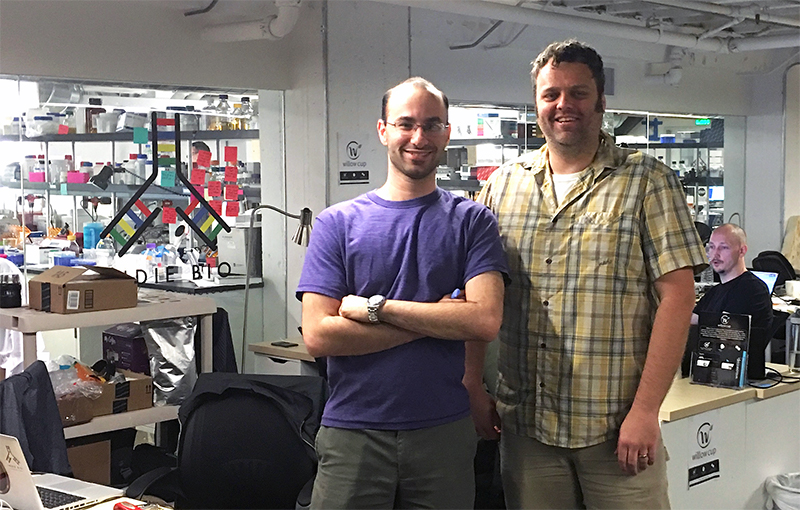
Marc Pollack, left, and Jeremy Warren at IndieBio in San Francisco. IndieBio is a startup accelerator in San Francisco. After a four-month program, Pollack and Warren will present AstRoNA Biotechnologies, Inc., to potential investors at IndieBio’s Demo Day this summer. (Credit: Astrona)
Accelerators create new ways to launch businesses
Startup accelerators like IndieBio, also known as seed accelerators, are business acceleration programs. Other examples include Y-Combinator and the Illumina Accelerator. The model originated about 10 years ago and has grown in popularity for launching new businesses, particularly in California. The application process is competitive, but if accepted, the accelerator provides seed money and an intensive mentoring and networking program in exchange for a share of the startup’s equity.
Astrona Biotechnologies, Inc., which was founded in 2015 by UC Davis faculty Bryce Falk, Maria Marco, Paul Feldstein, Andre Knoesen, Josh Hihath, Erkin Seker, and Ph.D. students Marc Pollack and Jeremy Warren, is one of 15 companies that are part of IndieBio’s spring 2016 cohort. What unifies the cohorts is they are all using biology as the basis of their technology.
As part of the program, Astrona may receive up to $200,000 in cash and $50,000 in program support from IndieBio in exchange for 8 percent equity in the company. Cohorts accepted into the accelerator move together through a three- to four-month program that involves mentoring and education, culminating in a “Demo Day” where each team presents its now-refined business plan to potential investors, media and the public.
Participating in the accelerator program has been intense for Pollack and Warren, not only because of the long drive and long day (they typically head back to Davis around 7 p.m.), but because of the intense scrutiny given to every aspect of Astrona. Pollack describes a recent mentoring session in which each participant had to examine what purpose they bring to their company. “That kind of intense self-reflection,” which is not something they normally did in the lab, “keeps us focused on why we are here.”
But even more than understanding what role they play within the company, the experience is helping the team refine its product concept. Pollack explains, “It is helping us understand how we fit into the general market. A lot of scientists come up with great ideas and they are great in theoretical mindsets, but when you bring it out into the world it’s important to understand where it fits in for customers.”
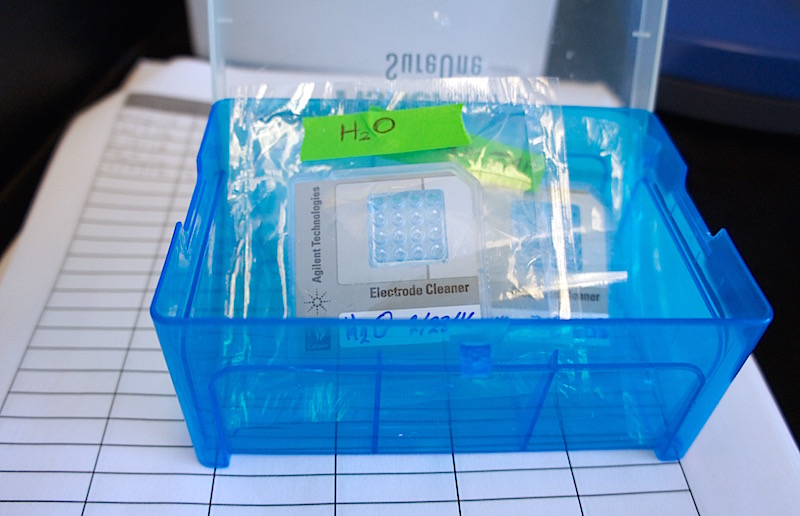
Chips for the bioanalyzer in Dr. Marco’s lab. The analyzer uses microfluidics to analyze DNA, RNA, protein, and cells using sample-specific chips. (Credit: UC Davis)
A journey with many stepping stones
Astrona’s technology emerged out of a unique interdisciplinary research seed-funding program, Research Investments in Science and Engineering (RISE). In 2012, the university made a bold investment of $10.8 million to fund the RISE program, assembling teams of experts from different disciplines to address global challenges. Astrona arose from one of 13 teams that received funding from the program, bringing together experts in the fields of plant pathology, food science, electrical engineering and computer engineering.
“The accomplishments of the Astrona team exemplifies the effectiveness of interdisciplinary research in finding practical solutions to complex problems,” said Paul Dodd, associate vice chancellor for research. “While the team’s initial work focused on illuminating some of the underpinning biological science, they were able to quickly leverage those insights to develop technology for a potential commercial solution.”
Funding from the RISE program helped to create a rich team-research learning environment where undergraduate students, early-career faculty and more senior academics were able to work together on problems of common interest.
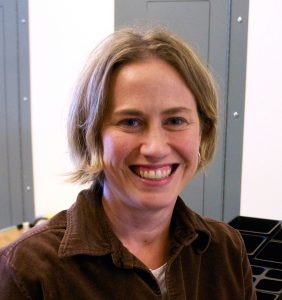
Dr. Maria Marco. (Credit: UC Davis)
Maria Marco, an associate professor in Food Science & Technology, said the RISE program created a unique opportunity for her. “I would have never started working on my own with Erkin and Josh,” who are both assistant professors in Electrical and Computer Engineering. Marco, who studies the microbiome—specifically lactic acid bacteria found in our food and guts—said initially there were challenges simply communicating. “Food science, electrical and computer engineering—we speak a different language. Even among biologists—ecologist and molecular biologists—there are different words and we use different definitions. So part of the challenge was learning to use the words in the right way.”
Marco sees her role as keeping the team grounded regarding pathogen detection, “This is the food environment,” but she remains excited about the technology they have created. “It has real potential to bridge my world with the electrical engineering world.” She laughs when she describes her initial thoughts about how long it would take. “Naively I thought back in 2012 that the engineers had everything worked out and it was just a matter of me telling them ‘Okay, I’m just going to do a little bit of work to get the nucleic acids out of these pathogens and then we can make a device.’”
Actually bridging those two points, though, has been far more arduous. She describes what the team has created as “a process” rather than a product at this point, a specific method to capture and amplify nucleic acid signals for different organisms so the organisms can be detected. For the initial product, the team is focusing on organisms that cause foodborne illnesses, such as the nasty E. coli O157:H7.
As the team progressed, members connected with UC Davis Venture Catalyst seeking assistance in forming a new company based on their vision for the product. Venture Catalyst provides campus entrepreneurs with guidance and resources to help researchers do just that, as well as offering customized services to help them succeed. Astrona participated in Venture Catalyst’s START™ program through which, in addition to company formation, it received help in developing the company’s business plan and assessing its strategy for commercializing its proprietary pathogen detection technology.
“Astrona provides a great example of how campus entrepreneurs can leverage the programs and services offered by the university to translate their cutting-edge research into commercial application,” said Dushyant Pathak, associate vice chancellor of research and executive director of Venture Catalyst. “The early work we do in effectively enabling our campus entrepreneurs, makes our startups more competitive for external resources like those offered by IndieBio.”
To manage their teaching load and their work with the startup, the faculty members are using some of their allowed consulting days to work on Astrona (faculty receive 48 days for an annual appointment, 39 days for nine-month appointment). Pollack is still working on his Ph.D. and is doing his Biotech Internship through the Designated Emphasis in Biotechnology with Astrona. Warren has finished his postdoc in Falk’s lab and is now working for Astrona full-time.
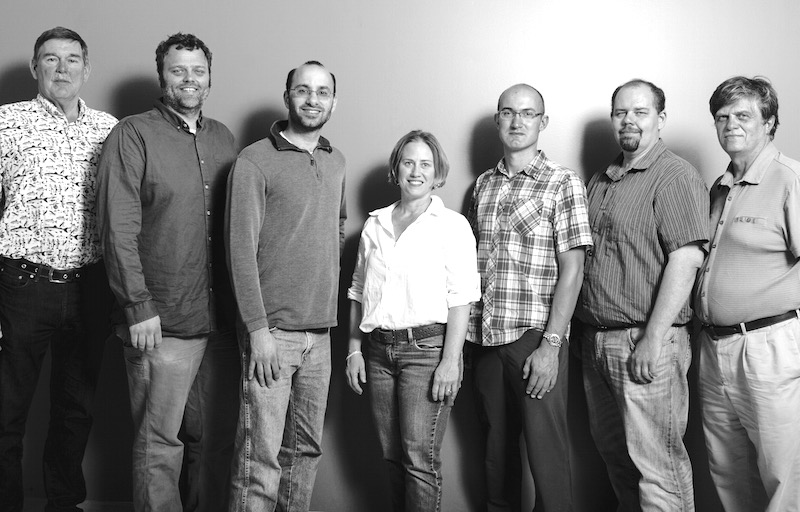
AstRoNA Biotechnologies, Inc., developed out of an interdisciplinary grant from the UC Davis RISE program. From left to right: Bryce Falk, Jeremy Warren, Marc Pollack, Maria Marco, Erkin Seker, Josh Hihath, Andre Knoesen. Not pictured: Paul Feldstein. (Credit: UC Davis, May 4th, 2016)
What’s next? Preparing for “Demo Day”
Back in San Francisco, Pollack and Warren have created a detector (although not quite a product prototype) that they are debugging in time for Demo Day, which will take place this summer. All 15 teams in the spring cohort will participate. The event usually draws about a thousand attendees.
Even though it’s still a few months off, Warren says getting ready for the presentation feels very rushed. “Our science works, but we need to be able to get up there and show how it works. We have seven minutes to wow everybody.”
Links
Contact
Lisa Howard
Communications Specialist
UC Davis Office of Research
[email protected]
(530) 752-8117
Jeremy Warren
CEO, Astrona Biotechnologies
[email protected]
(530) 867 3786



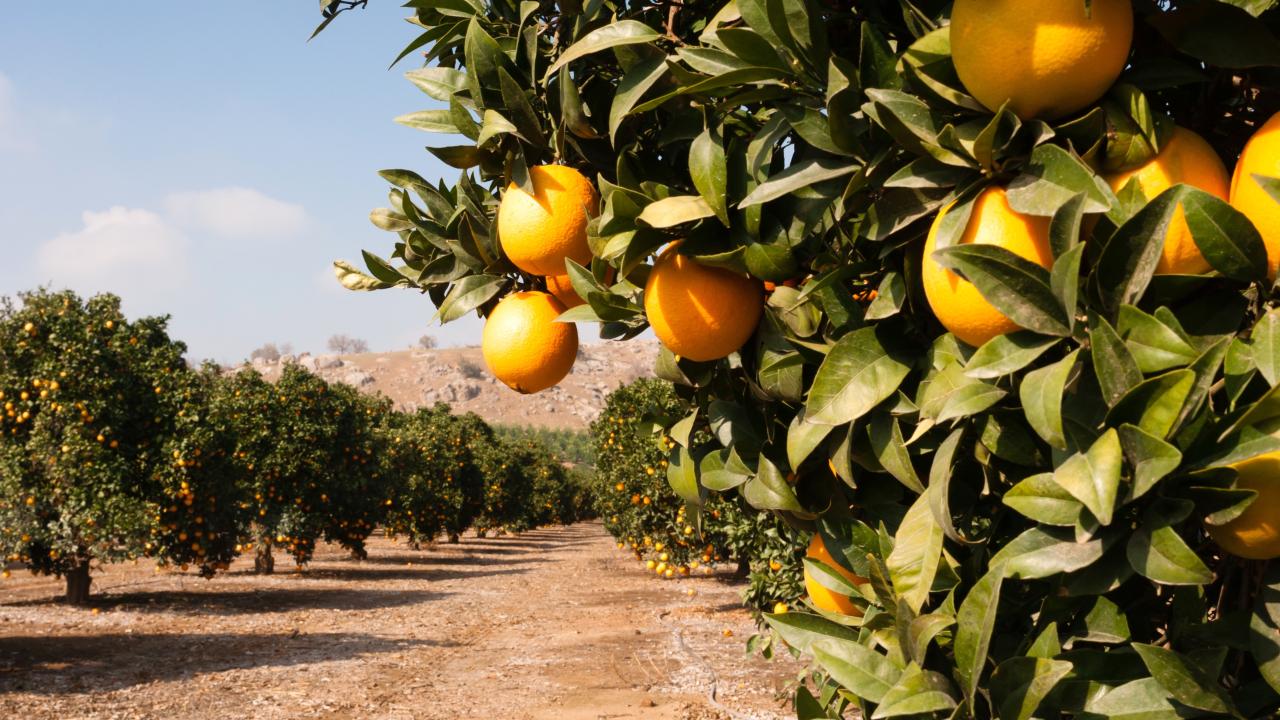








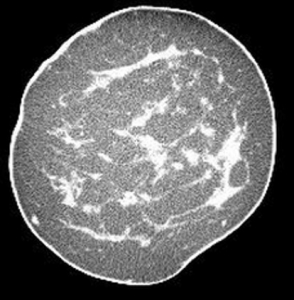 regular screening, but Boone has developed what could be a better approach, hopefully improving both detection and patient outcomes. Boone and his team have designed and developed an innovative computed tomography (CT) scanner designed specifically for imaging the breast (UC Case 2005-543). The intended advantage of this device is that it provides a true three-dimensional, highly-detailed image of the human breast, offering a less obstructed view of potential lesions than the current two-dimensional mammogram.
regular screening, but Boone has developed what could be a better approach, hopefully improving both detection and patient outcomes. Boone and his team have designed and developed an innovative computed tomography (CT) scanner designed specifically for imaging the breast (UC Case 2005-543). The intended advantage of this device is that it provides a true three-dimensional, highly-detailed image of the human breast, offering a less obstructed view of potential lesions than the current two-dimensional mammogram.